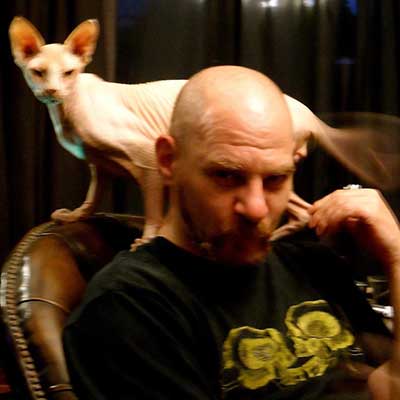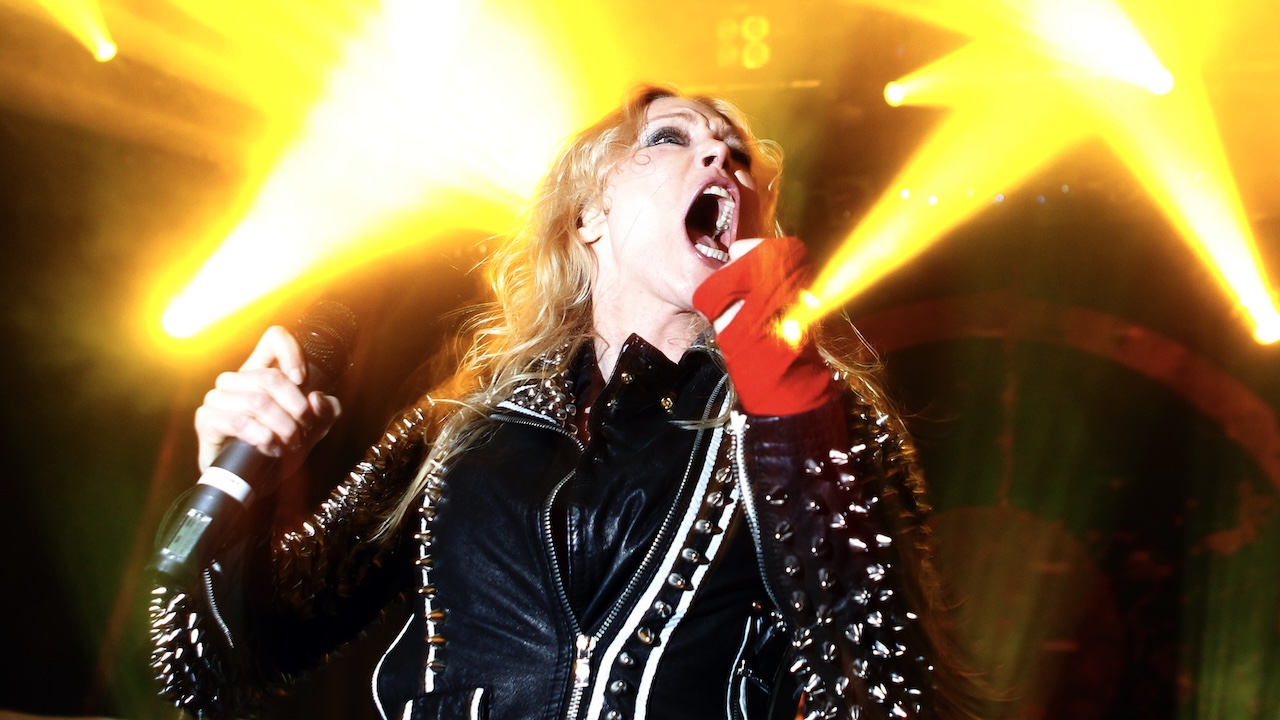Hypnotic psych rockers Ruby The Hatchet find magic in the Pennsylvania forests
Ruby The Hatchet unveil their ravishing, occult-steeped new album, Planetary Space Child, in full
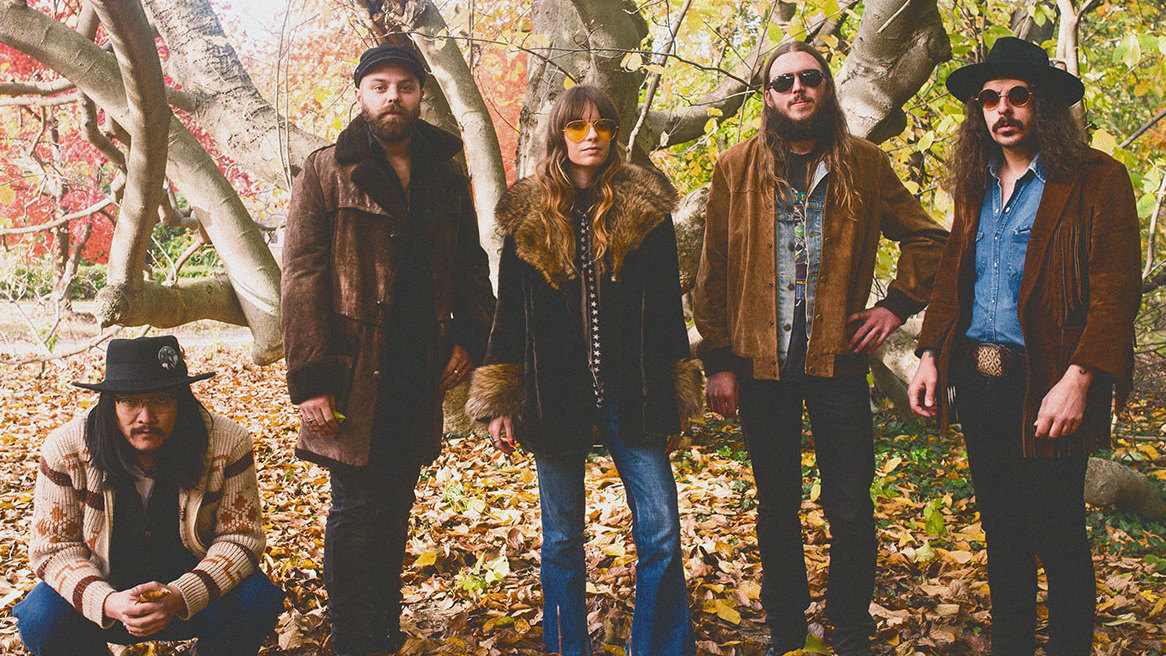
Select the newsletters you’d like to receive. Then, add your email to sign up.
You are now subscribed
Your newsletter sign-up was successful
Want to add more newsletters?

Every Friday
Louder
Louder’s weekly newsletter is jam-packed with the team’s personal highlights from the last seven days, including features, breaking news, reviews and tons of juicy exclusives from the world of alternative music.

Every Friday
Classic Rock
The Classic Rock newsletter is an essential read for the discerning rock fan. Every week we bring you the news, reviews and the very best features and interviews from our extensive archive. Written by rock fans for rock fans.

Every Friday
Metal Hammer
For the last four decades Metal Hammer has been the world’s greatest metal magazine. Created by metalheads for metalheads, ‘Hammer takes you behind the scenes, closer to the action, and nearer to the bands that you love the most.

Every Friday
Prog
The Prog newsletter brings you the very best of Prog Magazine and our website, every Friday. We'll deliver you the very latest news from the Prog universe, informative features and archive material from Prog’s impressive vault.
Not so much fetishising the late 60s/early 70s era of occult-tinged psychedelic rock as using it as a portal to richly furnished, vibrant new worlds, New Jersey’s Ruby The Hatchet have gone a few extra miles by recording their mesmerising new album, Planetary Space Child, in a 19th-century estate set deep in the Pennsylvania woods.
Swooping out to see the light of day on August 25 when it’s released via Tee Pee Records, Planetary Space Child is steeped in the kind of ravishing, otherworldly atmosphere that not only suggests that the band have tapped into the most resonant and most timeless of sources. Drenched in sumptuous, Hammond-wafted atmospheres, it ranges across spirit-liberating groove-givers such as Killer, the mantric reverie of Symphony Of The Night and the far-flung interstellar journey of The Fool - all the musical equivalent of a richly saturated, long exposure photo, placed on an altar bedecked with incense.
Not only do we have an exclusive stream of the album in all its immersive, booty-shaking glory, we also have an interview with velvet-voiced frontwoman Jillian Taylor, graciously conducted while the band are currently stranded due to broken down van on the way back from the Pscyho Las Vegas festival. If you want to help them make their way back, the band are having a merch sale here to fund getting their van fixed and getting home.
Without further ado, free your mind, flood it with images of imperious priestesses from faraway planets and indulge your senses with Planetary Space Child below!
The photos of the estate where you recorded Planetary Space Child look pretty amazing. Did it allow you to get in touch with something within yourselves and did it leave its own imprint on the album? How aware were you of the building’s history?
Jillian Taylor (vocals): “Recording at that location was a surreal experience. It was an 1800s-era estate that immediately felt like home, and everyone there became family. We ate our meals together and didn’t leave much. There is something unique and otherworldly about every room in that place. We used the acoustics of the house to our advantage – most of the drums were recorded at the foot of the main staircase with microphones hanging from banisters two and three floors up. Some vocals were tracked in little alcoves throughout the house that had super echoed splash back. There are quirky examples like these for every element of the recordings, and this album wouldn’t sound the same if we recorded it anywhere else.
“Most of us didn’t know much about the estate before setting up camp. Our gracious friend and host Karl Rieders kept dropping facts throughout the weeks spent there. This house in particular has its own name – ‘Keywadin’, as do all other designs by turn of the century architect, Horace Trumbauer. He was asked to join one of America’s first architecture firms, but he had an African American apprentice at the time, which was controversial. The firm told Trumbauer to lose the apprentice or risk exclusion, to which he told them the Edwardian equivalent of ‘shove it’ and went on to create these beautiful homes with his apprentice by his side. That story stuck with us while recording – the free spirit of creativity, the rebellion… there’s also an entire room filled with nothing but Lego, because why not.”
Sign up below to get the latest from Metal Hammer, plus exclusive special offers, direct to your inbox!
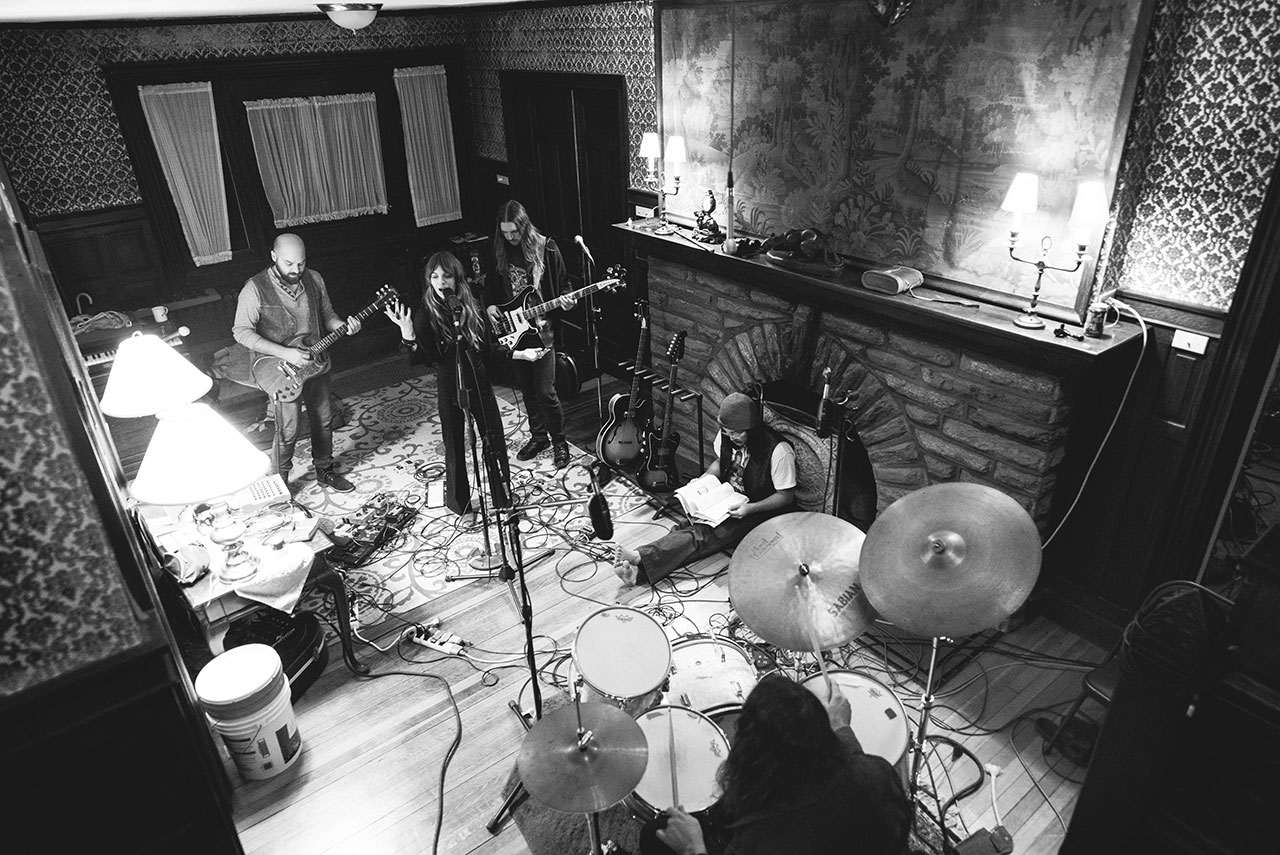
There’s a very mantric element to a lot of the songs, Killer in particular. How does losing yourself in a groove affect your consciousness when you play?
“In some situations we aim to lose ourselves in the groove, it’s usually how we know we’re onto something good. That’s what happened when tracking Killer. We switched the drum setup from what we used for the rest of the album by moving them to this dry, dead-sounding room. We gave the metronome the afternoon off and focused on the groove. It happens while playing live too, you’re so hyper-focused that you switch to autopilot and kind of go somewhere else. Like meditation, but for gritty rock’n’rollers.”
Was the recording in itself a journey of discovery for you? Did the process bring out aspects you hadn’t anticipated?
“It was absolutely a journey of discovery, and a test of patience. We had been working on some of these songs for quite a while before it was time to track them. You get a lot of ideas about how the songs should sound and become attached to how they play in your head, but it rarely ends up how you imagine… that was a hill we climbed on this record. We tried to find the backbone of each song and build from there. We had hand made pre-amps and loads of vintage gear at our disposal so we let the process ride and tried everything and anything we wanted. It pushed us to venture into the unknown, like in The Twilight Zone… ‘You unlock this door with the key of imagination…’”

How important is the setting to you when you play live? Do you see the live shows as ritualistic in any way?
“The setting for live shows isn’t important per se, but the vibe definitely is. Some of our favourite shows have been in dive bars with no stage our sound tech. You kind of walk in wondering, ‘How the fuck is this going to go,’ but there’s this raw element that becomes electric and you make your own fun from there.
“The spirit of the crowd dictates more than the setting of wherever we happen to be, and we feed off of their energy big time. Whether the show is at some beautiful theatre with state of the art sound, or a plug-in-and-play spot in the middle of nowhere, the show itself does seem a bit ritualistic. Much of that feeling comes from the audience, and our songs being so long and winding; they are like tales we are telling.”
Is this a concept album at all, and did you have any particular literary reference points? Late 60s/early 70s sci fi and fantasy had a knack for building lurid new worlds, and I was wondering how much those genres inspired you.
“We didn’t plan this as a concept album, and didn’t even have a name for it until all was said, done and recorded. There wasn’t one work in particular that influenced the process, but being that we are all disciples of 60s/70s fantasy, a lot leaks through. At the time I was reading Stephen King’s Tommyknockers and doing some research on Pagan rituals and the Zodiac killer. All the songs come from different corners of the mind – perspective plays from kings in ancient times, murders, dreams, mythology, sci-fi beings… it’s cathartic to interpret your own feelings through the cyclical nature of everyone else’s, and it tends to be a bit more interesting. Everything ties together tighter than we realise. Planetary Space Child was the inevitable title track, guiding the listener to where the rest of the album goes. The hook ‘Don’t I know you from another world?’ hits on the interconnected-ness of the music and the characters that follow.”
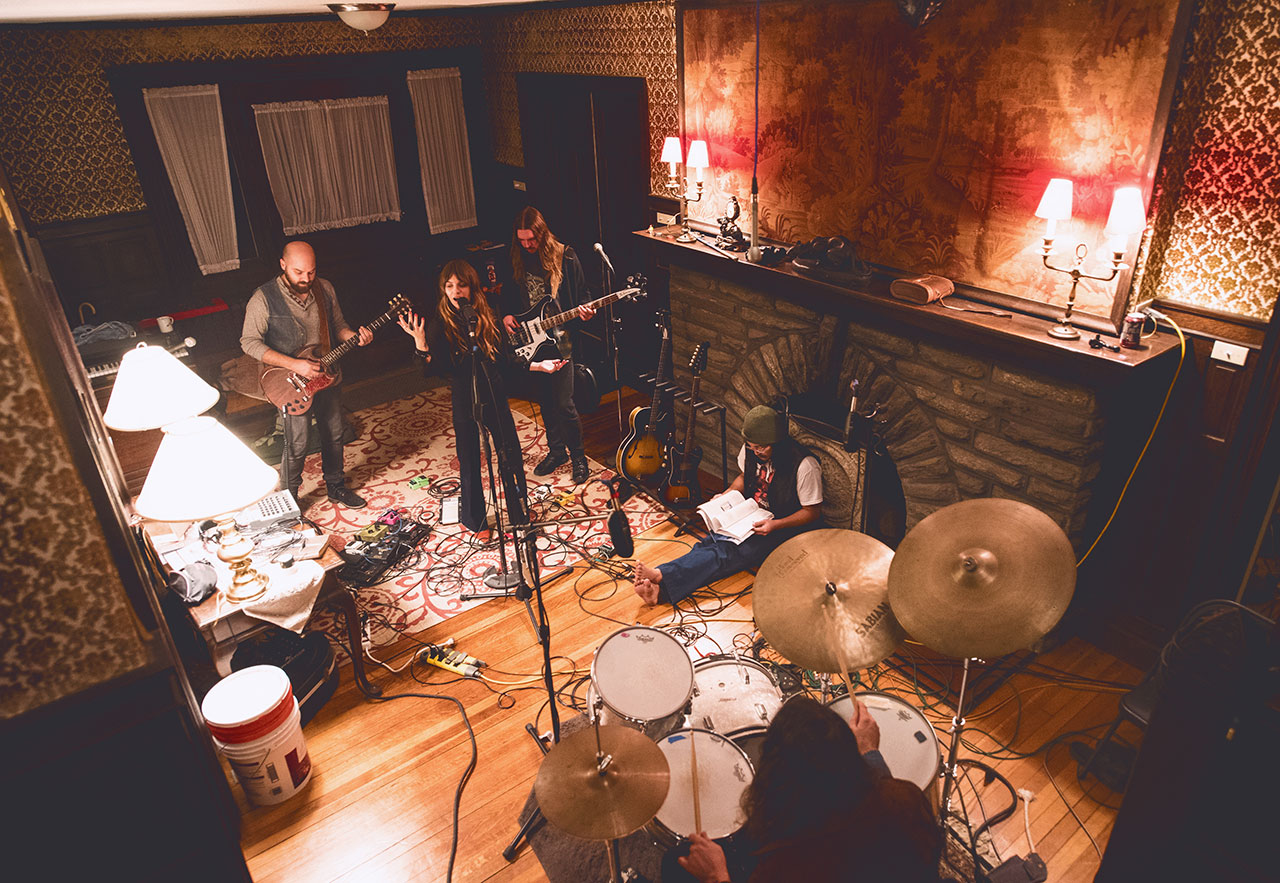
As much as there’s a 70s template and you’re able to create a really organic sound from that era, this doesn’t sound like a retro-exercise. What do you think we need to rediscover from that era, and how relevant are Ruby The Hatchet to our present times?
“Well, thank you. One of the special things about this band is that we write everything together. There is no singular singer/songwriter. Everyone has diverse influences, but this process keeps the music from being too derivative of any one thing. We would all have different answers about what to rediscover from retro music that run the gamut from Uriah Heep to Jackie Mittoo to Roy Orbison to Frumpy. We consciously and subconsciously blend what we’re feeling and keep it relevant for ourselves by trying to evolve the craft and the writing. Relevance is just relevant, after all. We have some really inspiring and interactive fans, and if some kid 20 years from now digs our music then it all becomes relevant again.”
How do you think you’ve grown as a band since Valley Of The Snake, and how much of your own experiences since have found their way on to the new album?
“Valley… came out two years ago now and sometimes it seems even longer than that. That was the album we got on the road with, and the album that introduced organ into the writing process. After Valley… we gained a new friend and bass player, Lake, who moved in with us and put a new spin on writing. Given all that, some of the new songs can be a bit more proggy with lots of layers and rhythms and counter rhythms, while others could be more simple and dry. We don’t write about personal experiences specifically, but experience influences how we play and encourages us to explore what we haven’t yet.”
There are bands drawing from the 70s who run the spectrum from thinking Dennis Wheatley novels are cool to holding profound spiritual beliefs. Where do you feel you belong on that spectrum and how much is Ruby The Hatchet a way of life for you?
“We’re probably all over that spectrum, albeit a bit more Philip K Dick / Alejandro Jodorowsky-leaning. So much of what we do, play and listen to is retro-rooted that we can’t help but have spiritual beliefs linked to simpler times. Lovin’ and livin’ above all else. History repeats itself. Human nature and the human condition are cyclical. The road and the folks you meet on it encapsulate this easy feeling freeness that becomes a way of life all of its own. We’ll gladly ride that until the ride is up, it’s the best feeling we know.”
Check out Ruby The Hatchet’s Facebook page here, and order Planetary Space Child here!
Having freelanced regularly for the Melody Maker and Kerrang!, and edited the extreme metal monthly, Terrorizer, for seven years, Jonathan is now the overseer of all the album and live reviews in Metal Hammer. Bemoans his obsolete superpower of being invisible to Routemaster bus conductors, finds men without sideburns slightly circumspect, and thinks songs that aren’t about Satan, swords or witches are a bit silly.
